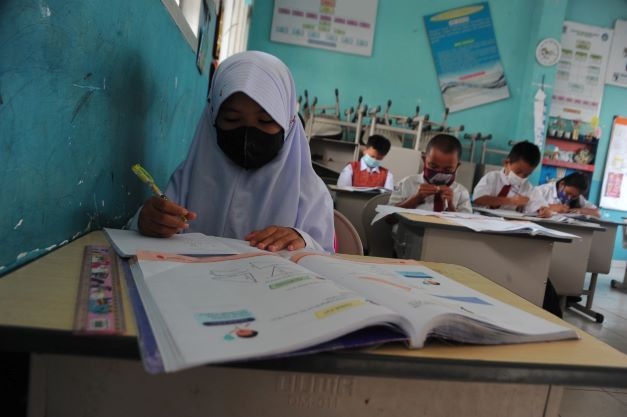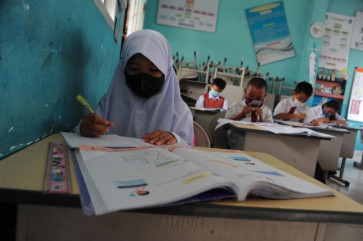Popular Reads
Top Results
Can't find what you're looking for?
View all search resultsPopular Reads
Top Results
Can't find what you're looking for?
View all search resultsFreedom curriculum: Beware of 'Matthew effect'
While there is no quick fix to Indonesia's education crisis, we must make more concerted efforts across the board to make sure that all students, regardless of their socioeconomic or geographic background, have access to quality education.
Change text size
Gift Premium Articles
to Anyone

Two days after the Group of 20 Education Working Group kicked off, the Education, Culture, Research and Technology Ministry launched on Feb. 11 the Kurikulum Merdeka (freedom curriculum) and Merdeka Belajar (freedom to learn) platform in episode 15 of the Freedom to Learn Agenda.
Three promising characteristics, focusing on essential materials, teacher autonomy and project-based learning, distinguish the new curriculum from the existing 2013 curriculum. The education minister said that the freedom curriculum aimed to respond to the prevailing education crisis, made worse during the remote learning policy as indicated by reported learning loss.
Will the freedom curriculum allow the education system to overcome the crisis and lift up human capital?
Referring to the 2018 results of the Programme for International Student Assessment (PISA), our 15-year-olds’ average performance in reading, mathematics and science respectively rank 71st, 70th and 69th out of 77 countries. The country note from PISA 2018 further reveals that around 40 percent of Indonesian students achieved level 2 or higher in science, compared to the 78 percent average among the countries of the Organisation for Economic Co-operation and Development (OECD).
The definition for PISA's level 2 in science means students can explain basic scientific phenomena and evaluate the validity of a conclusion based on the data.
Nevertheless, 0.1 percent of Indonesian students were top performers in science, meaning they were at level 5 or 6, constituting the OECD average of 7 percent (OECD, 2019). These students can creatively and autonomously apply their scientific knowledge to various situations, including unfamiliar ones. This finding shows the prevalent issue of inequality in Indonesian education.
The prolonged pandemic has further served as a magnifying glass, exposing inequality in the provision of quality education for all students across the nation. Students from privileged backgrounds have enjoyed learning online and even accelerated their learning through high-quality resources from anywhere in the world, while those from disadvantaged backgrounds lacked access to the internet and the devices they need to access adequate resources.



















